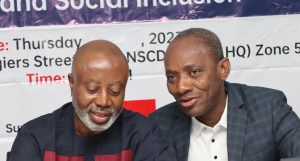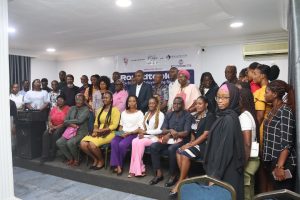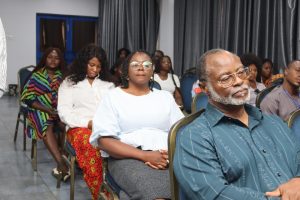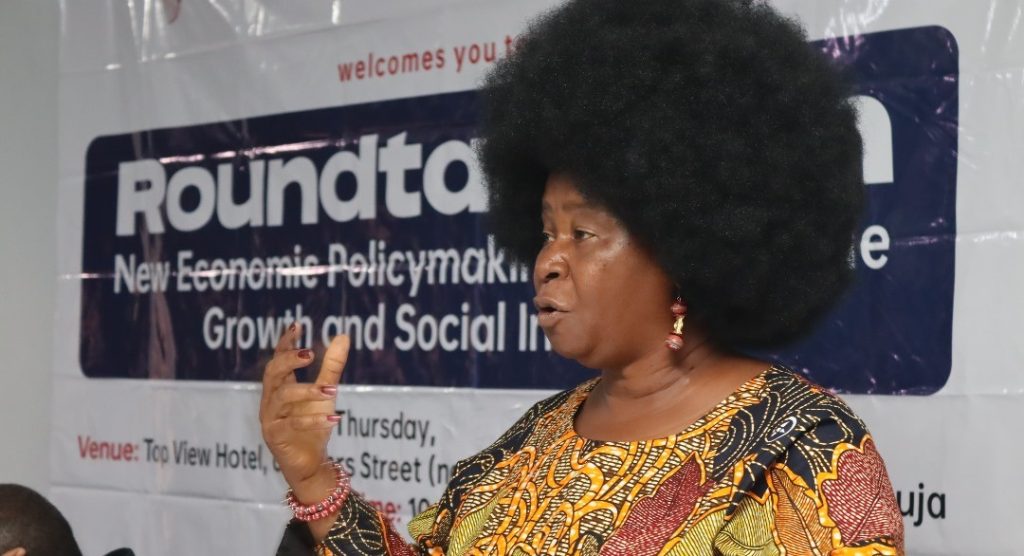Our Reporter, Abuja
African Centre for Media and Information Literacy (AFRICMIL) has organised a roundtable to discuss ways of improving the policy-making process in Nigeria for greater growth and social inclusion.
The Roundatble, which took place in Abuja in collaboration with Social Development Integrated Centre (Social Action), Centre for Public Policy and Research (CPPR), and the International Institute of Journalism (IIJ) and was supported by the Rosa Luxemburg Foundation, was themed, New Economic Policy-making for Equitable Growth and Social Inclusion.
In his welcome address, the Coordinator of AFRICMIL, Dr Chido Onumah, said the roundtable was part of their effort in promoting democracy, good governance and orderly society.
“In continuation of our efforts to promote democracy, good governance and orderly society, AFRICMIL in partnership with the Centre for Public Policy & Research, Social Action, and the International Institute for Journalism with support from Rosa Luxemburg Foundation put together this event for stakeholders to deliberate on policy-making for equitable growth and social inclusion.”
He also lamented the many economic and social challenges faced by the country, which include high unemployment rate, multi-dimensional poverty poor, lacking access to basic education and sanitation. According to Dr Onumah, the objective of the roundtable was “to bring together knowledgeable leaders of civil society and policy community in Nigeria to have a moderated conversation on key issues of economic and social policies that affect the social and economic well-being of Nigerian, especially young people.”
In his keynote address, the Director, Centre for Public Policy & Research, Dr Sam Amadi, submitted that Nigeria can only make progress if and when it learns to democratise its policy-making process.

Dr Amadi who was formerly the chairman of National Electricity Regulation Commission (NERC), identified flaws in the policy-making process of the country, which have hitherto negated growth to include the “technocratic process” where a few so-called eggheads were gathered into a room to make policy, which according to him only lead to a few people getting richer while the majority were impoverished.
“Economic policy-making should be procedurally inclusive – policy-making should not be left to technocrats alone. You’ve got to have a mix of a policy-making team,” he said.
He also advised that the welfare of the people must form the fulcrum of any good policy as he observed that African economies and indeed the Nigerian economy made progress only when the people were at the centre of policies.
Dr. Amadi also called for pragmatism and open-mindedness in the policy-making process arguing that economics is not science like physics and so “economic principles and theories must be adapted to reality,” even as he advocated a developmental economics that allows the state to intervene when it is necessary.
He further lamented the growing poverty and inequality in the country, which he attributed to poor policy choices like misallocation of resources in budgeting; erosion and absence of social protection laws and lack of effective access to remedies.
“We don’t have a debt problem but we have a revenue problem. We have the the second highest unemployment rate in the world, the lowest minimum wage in West Africa.
“If you compare all the indicators, what it tells you are two things: one, our economy is not growing; and two, human social economic well-being of the people is getting worse. So under this real existential situation, what should economic policy become, he queried.

In her presentation, the immediate past Country Director of Action Aid, Comrade Ene Obi, raised questions on the virility of the civil society and active citizenship today and wondered whether the myriad of problems in the country now have not made the people weary to talk again.
“In the issue of unquestionability in accountability, what kind of civil society do we have at the moment? Are we ready to even question, or are we tired or have we retired? Are we still questioning or are we processing? I think we are getting to the point that people are so frustrated that they don’t want to listen to the news anymore. I think it was during the Abacha regime that we had that bad style when sometimes yo wake up and you don’t want to hear and you don’t want to see the news. But we are getting to that point.
“Yet the office of the citizen is the highest office in the land. So, what are you doing with your citizenship?
“I do agree that we have the issue of unemployment, of many youths leaving school for many years without jobs; we are getting to the point of being perplexed and not asking questions anymore and you are waiting for a few people to ask. Is that enough? Where are we in terms of citizenship, or do we have quality or should we look at the strata of citizenship?”
Obi also canvassed for social inclusion especially the involvement of more women in governance by raising the issue of 35% affirmative action for women. According to the rights activist, it would be understandable to argue that not many women come up for elective positions, but not in appointive political offices.
She decried the situation in some state assemblies where there are Women Committees and no single female legislator or people with disability. She insisted that women are not done any favours by their inclusion in the governance process.

Hauwa Mustapha, a policy analyst, on her part observed that neoliberalism has been the philosophical underpinning of Nigeria’s economic policies in decades and the fact that the country is plunged into a multi-dimensional poverty summons a rethink for new pathways.
“However the characteristic of the multi-dimensional poverty that we are experiencing is scary, and sets a cloud on our development path. This reality should be a motivation for a new thinking of the economic policy pathway.
“How do we break the shackles of poverty, how do we make the gains of economic growth to be horizontal across sectors and groups rather than a vertical growth structure that is sloped to protect the strong and privileged,” she queried.
She however concluded by calling for the inclusion of the diverse voices in designing policies for the achievement of meaningful growth.
“Therefore for economic growth policy to be effective, it must be designed and implemented for the people with the inclusion of diversity of voices and interests that cut across groups, sectors, sections and location.”
Earlier in her goodwill message, Comrade Agela Odah, the Country Director of Rosa Luxemburg Foundation, extolled AFRICMIL for putting the roundtable together which she said was very important. She also encouraged citizens, especially the youth, to participate in the governance process in their country.
The well attended event was ably moderated by Godwin Onyeacholem, the Programmes Manager of AFRICMIL.

